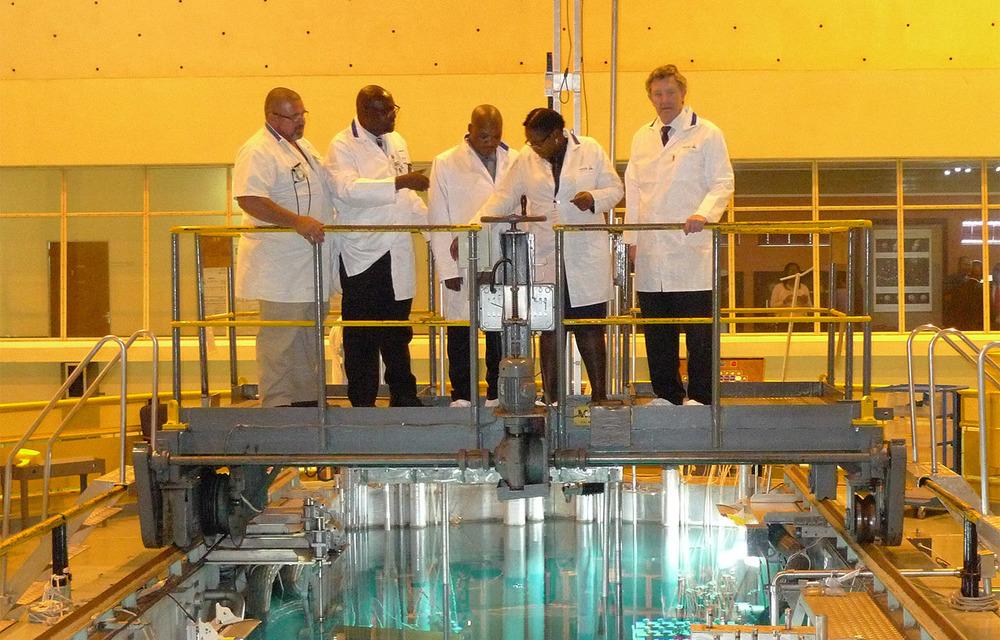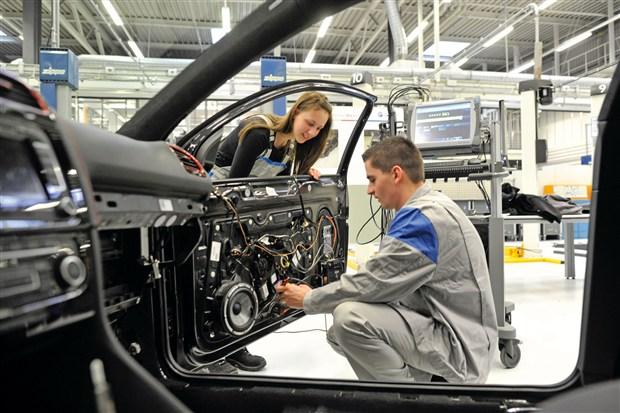Explore Our Bill Payment Services:

- Salary And Allowance
- Engineers Salary
- South Africa
Salaries And Allowances Of Biomedical Engineering In South Africa
Biomedical engineering is one of those fascinating careers that sits right at the intersection of science, technology, and human well-being. Think about it: engineers in this field are the brains behind prosthetic limbs that restore mobility, advanced imaging machines that save lives daily, and healthcare software that makes hospitals run more efficiently. It’s no exaggeration to say biomedical engineers are changing the face of medicine.
But while the profession sounds glamorous and intellectually rewarding, one question lingers in the minds of students, graduates, and even practicing professionals: what does the salary and allowance structure look like in South Africa?
That’s exactly what we’ll unpack in this guide. From average salaries across different levels of experience to how education and location influence pay, as well as the role allowances and bonuses play, you’ll leave here with a crystal-clear picture of the earning potential in this dynamic career path.
Average Salary: Setting the Baseline
When people talk about career choices, they often think passion first—but let’s be honest, paycheck matters too. For biomedical engineers in South Africa, the average monthly salary hovers around R30,500, which amounts to about R365,600 annually. That’s a fairly respectable figure, especially when compared to many other technical professions.
At the entry level, things start a little more modestly. Fresh graduates can expect salaries closer to R14,800 per month. But as with most careers, there’s a big leap the more you grow. On the upper end, highly experienced biomedical engineers or those in specialized roles can earn above R79,000 per month.
Interestingly, surveys across the industry often point to an average range of R28,000 to R33,000 per month, depending on the specific workplace and sector. Some roles, especially those in large hospitals, research institutions, or private companies dealing in advanced medical technology, pay significantly more than roles in public institutions.
Key takeaway
On average, biomedical engineers in South Africa earn between R30,000 and R33,000 per month, though this figure shifts dramatically based on seniority and sector.
The Role of Experience: How Salaries Progress Over Time
If you want to know how much you could be making in the future, here’s the ladder of progression. Salaries in biomedical engineering climb steadily with every stage of experience, and the growth can be quite rewarding.
-
Entry-Level (0–2 years): Expect around R14,900 per month (roughly R180,000 per year). At this stage, the focus is on learning, gaining practical exposure, and building a professional network.
-
Early Career (2–5 years): Salaries jump to approximately R19,900 per month, which is about R239,000 annually. With a few years of hands-on work, you’ll start handling more responsibilities, from small projects to assisting with advanced research.
-
Mid-Career (5–10 years): This is where paychecks start looking really attractive. Professionals in this bracket often earn R29,400 per month, adding up to about R351,200 per year.
-
Experienced Engineers (10–15 years): At this point, you’re no longer just an employee—you’re probably a leader of a team or department. Salaries hover around R35,800 per month, or R431,100 per year.
-
Senior Level (15–20 years): Biomedical engineers with 15–20 years in the field earn around R39,000 per month, roughly R467,100 per year.
-
Veterans (20+ years): At the top of the ladder, salaries can climb to R42,300 per month or more, translating into R507,300 annually.
Some estimates put the earnings for senior biomedical engineers even higher, reaching between R700,000 and R1.2 million annually for those in specialized managerial or consultancy roles.
Key takeaway
Within the first decade of your career, your pay can nearly double. By the time you’re at senior or veteran level, biomedical engineering can comfortably sustain a high standard of living.
Location: Why City Matters
In South Africa, salaries are not just about your years of experience—they’re also about where you choose to work. The city you live in plays a big role in determining how much you take home at the end of the month.
Johannesburg, for example, is the financial and technological hub of the country, and naturally, biomedical engineers here earn more than their counterparts in smaller cities. Here’s a rough breakdown of what you might expect in Johannesburg:
-
0–2 years: Around R197,600 annually
-
2–5 years: About R266,000 annually
-
5–10 years: Roughly R345,700 annually
-
10–15 years: Approximately R421,400 annually
-
15–20 years: Around R459,300 annually
-
20+ years: Near R483,400 annually
The figures clearly show that salaries in Johannesburg consistently outpace national averages, especially as professionals climb into more senior positions.
Key takeaway
If maximizing your income is your priority, positioning yourself in Johannesburg—or another medical technology hub—could significantly boost your earnings over time.
Education: Bachelor’s vs. Master’s
Another major factor that shapes income in biomedical engineering is education level. While a bachelor’s degree is the basic entry requirement, pursuing a master’s degree can drastically improve your earning power.
-
Bachelor’s degree holders: Average around R17,300 per month (just over R207,000 annually).
-
Master’s degree holders: Average about R33,400 per month (nearly R400,000 annually).
That’s close to a 93% increase—almost doubling your income potential. Beyond the numbers, advanced qualifications also open doors to leadership roles, research opportunities, and specialized consultancy work.
Key takeaway
Investing in higher education isn’t just about academic pride—it can dramatically alter your financial trajectory.
Allowances and Bonuses: What Extras Come With the Job?
Here’s where things get a little tricky. Unlike some professions with clearly defined housing, transport, or risk allowances, biomedical engineering in South Africa doesn’t have a universally standardized system of perks.
However, many biomedical engineers do benefit from flexible allowances, which can include housing support, transportation benefits, or even health insurance. In some cases, reported salary ranges already factor in these extras.
What about bonuses? While not guaranteed across the industry, performance-based incentives and project-related bonuses do exist, particularly in private sector companies or international medical tech firms. For those in senior consultancy roles, profit-sharing agreements may also apply.
Key takeaway
Most of your earnings as a biomedical engineer will come from base salary. But depending on your employer—especially in the private sector—you may enjoy additional perks and performance-linked bonuses.
Salary Overview Table
To give you a bird’s-eye view of how salaries stack up, here’s a summary:
| Career Stage / Factor | Monthly (ZAR) | Annual (ZAR) |
|---|---|---|
| Entry-level (0–2 yrs) | ~14,900 | ~180,300 |
| Early-career (2–5 yrs) | ~19,900 | ~238,900 |
| Mid-career (5–10 yrs) | ~29,400 | ~351,200 |
| Experienced (10–15 yrs) | ~35,800 | ~431,100 |
| Senior (15–20 yrs) | ~39,000 | ~467,100 |
| Veteran (20+ yrs) | ~42,300 | ~507,300 |
| Johannesburg (0–2 yrs) | – | ~197,600 |
| Johannesburg (20+ yrs) | – | ~483,400 |
| Bachelor’s Degree Holders | ~17,300 | ~207,700 |
| Master’s Degree Holders | ~33,400 | ~399,900 |
| National Average | ~28,500–30,500 | ~342,000–365,600 |
| High-end / Specialized Roles | ~58,000–100,000+ | ~700,000–1,200,000+ |
Insights & Career Advice for Biomedical Engineers
Let’s break down what all this means in practical terms for anyone navigating the biomedical engineering landscape in South Africa.
Embrace Experience
The longer you stay, the better it gets. Salaries can double within the first 10 years, so patience, dedication, and consistent professional development really pay off.
Choose Your Location Wisely
Relocating to cities like Johannesburg might be worth it if financial growth is your top priority. The salary difference compared to smaller towns is too significant to ignore.
Invest in Education
A bachelor’s degree gets your foot in the door, but a master’s can swing that door wide open. It can nearly double your income potential and secure leadership roles.
Don’t Rely Too Heavily on Perks
Yes, allowances and bonuses exist, but they’re not standardized. Focus on negotiating a strong base salary first, then treat bonuses as the cherry on top.
Specialize to Stand Out
Fields like prosthetics, biomedical software, and imaging systems are in high demand. Developing expertise in these areas can push you to the higher end of the pay spectrum.
Conclusion
Biomedical engineering in South Africa is more than just a career—it’s a calling that combines technical expertise with human impact. While starting salaries may feel modest at around R180,000 annually, the profession offers impressive upward growth, with experienced professionals earning anywhere between R400,000 to over R1 million annually, depending on specialization, location, and qualifications.
The financial picture is clear: your earnings rise with experience, advanced education gives you a significant edge, and working in hubs like Johannesburg boosts your prospects even further. Allowances and bonuses may not be a given, but the steady salary progression ensures a rewarding career both financially and personally.
For anyone weighing the pros and cons, biomedical engineering in South Africa presents not only stability and financial promise but also the unmatched satisfaction of saving and improving lives. And really, what better way to balance purpose and paycheck?









